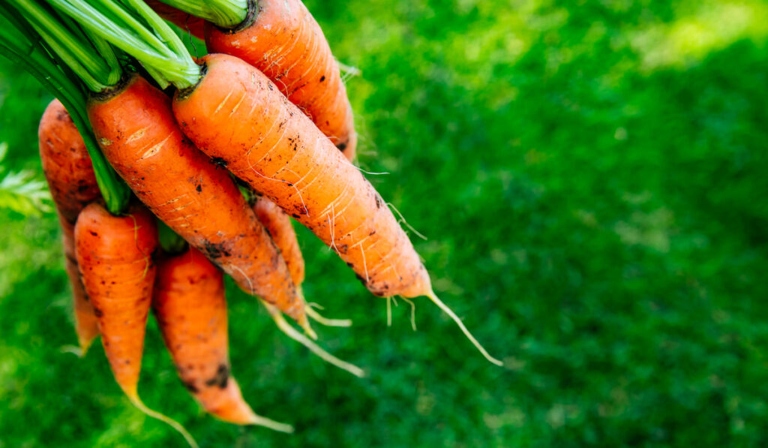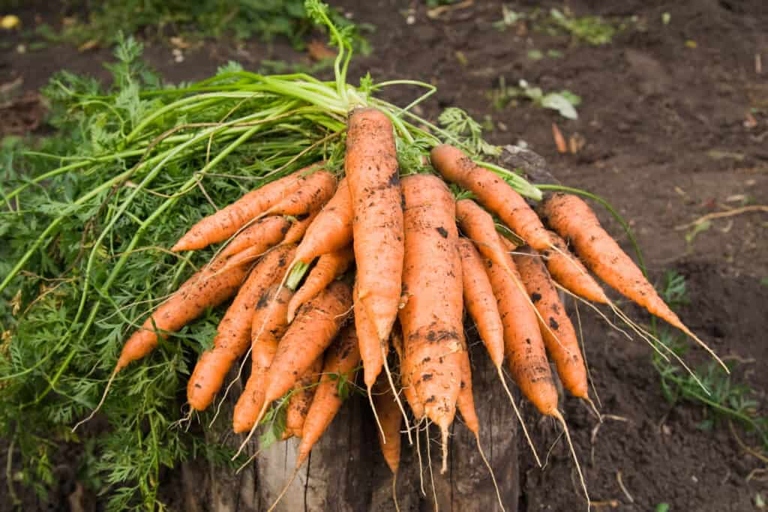Carrots are a healthy and delicious vegetable that can be enjoyed cooked or raw. However, sometimes carrots can split, which can be unsightly and cause them to be less enjoyable to eat. This article will explore the reasons why carrots split, whether it can be prevented, and if carrots that have split are still safe to eat.
Can’t Take the Pressure
However, carrots can sometimes split, which can be frustrating for those who are trying to enjoy them. While there are a few different reasons why carrots may split, there are also a few things that can be done to prevent it from happening. Carrots are a healthy and delicious vegetable that can be enjoyed by people of all ages. Additionally, even if carrots do split, they are still safe to eat.
So They’re Cracked! But Can You Still Eat Them?
But don’t worry, there are still plenty of ways to use carrots that have split. Carrots are a healthy and popular vegetable, but sometimes they can split. This can be frustrating for gardeners and cooks alike. We’ll also share some recipes for using carrots that are already split. In this section, we’ll explore why carrots split and how to prevent it.
What Is That Inside the Cracked Carrot?
and see if there’s anything we can do to prevent it. Carrots are a healthy, crunchy snack that many of us enjoy. In this section, we’ll take a closer look at “what is that inside the cracked carrot?” But have you ever wondered why they sometimes split open, or what that white stuff is inside?
So Once Carrots Are Harvested, How Long Do Carrots Last?
Carrots that are not stored properly may start to split, which can reduce their shelf life. Once carrots are harvested, they can last for several weeks to several months if they are stored properly. Carrots are a root vegetable that are typically orange in color, though they can also be white, yellow, red, or purple. Carrots are harvested when they are fully grown, which typically takes between 60 and 80 days.
How Can You Tell If Carrots Are Bad, Rotten, or Spoiled?
There are a few ways to tell if carrots are bad, rotten, or spoiled. Carrots are an excellent source of vitamins and minerals, but they can go bad if they are not stored properly.
If the carrots are limp, discolored, or have any mold on them, they should be thrown out. If the carrots have a strong odor, they are also probably bad.

Carrots that have split are still safe to eat, but they may not be as tasty. If you notice that your carrots are splitting, you can try to prevent it by storing them in a cool, dark place and keeping them slightly moist.
What Are All the Ways Carrots Can Be Stored to Extend Their Life?
Carrots can be stored in the refrigerator, in a cool, dark place, or in a root cellar. Carrots are an excellent source of vitamins and minerals, and they can be stored in a number of ways to extend their shelf life. Carrots can also be frozen or canned. When storing carrots, be sure to keep them away from other fruits and vegetables, as they can cause the carrots to spoil faster.
What Exactly Is Blanching?
This is done to stop the cooking process and preserve the color, flavor, and texture of the vegetable. Blanching is a process of scalding vegetables in boiling water for a short period of time followed by a quick plunge into ice water.
A Variety of Tips About Storing Your Carrots
Here are a few tips: Carrots are one of the most popular vegetables, and they are relatively easy to store. However, there are a few things you should know about storing your carrots to keep them fresh and prevent them from splitting.
-Store carrots in a cool, dry place. A root cellar or basement is ideal.
-Wrap carrots in a paper towel or cloth to absorb moisture.

-Do not wash carrots until you are ready to use them.
-Trim the greens off of carrots before storing them.
-Check on your carrots regularly and use them up as soon as possible.
Frequently Asked Questions
1. Why do carrots split?
Carrots split when they are exposed to too much moisture, which causes the vegetable to swell and rupture. This can happen when the carrots are grown in overly wet conditions, or if they are stored in a humid environment.
2. Can splitting be prevented?
There are a few things that can be done to prevent carrots from splitting. First, make sure to plant the carrots in well-drained soil. Second, water the plants regularly, but do not over-water them. Finally, store the carrots in a cool, dry place.
3. Are split carrots still safe to eat?
Yes, split carrots are still safe to eat. However, they may not be as tasty as carrots that have not split.
4. What are some other problems that can occur if carrots split?
If carrots split, they may be more susceptible to rot and pests. Additionally, the quality of the carrots may decline, making them less tasty and less nutritious.
5. Can anything be done with split carrots?
There are a few things that can be done with split carrots. One option is to cut off the damaged portion of the carrot and use the rest. Another option is to cook the carrots, which can help to improve their flavor.
Final thoughts
There are a few reasons why carrots may split. One reason is that the carrot was grown in soil that was too dry. Another reason could be that the carrot was exposed to too much cold or heat. Finally, the carrot could have been grown in soil that was too rich in nitrogen. While there are a few things that can cause carrots to split, there are also a few things that can be done to prevent it. Carrots can be soaked in water for a few hours before planting to help them retain moisture. They can also be mulched to help keep the roots cool and moist. If you find that your carrots have already split, don’t worry! They are still perfectly safe to eat.
